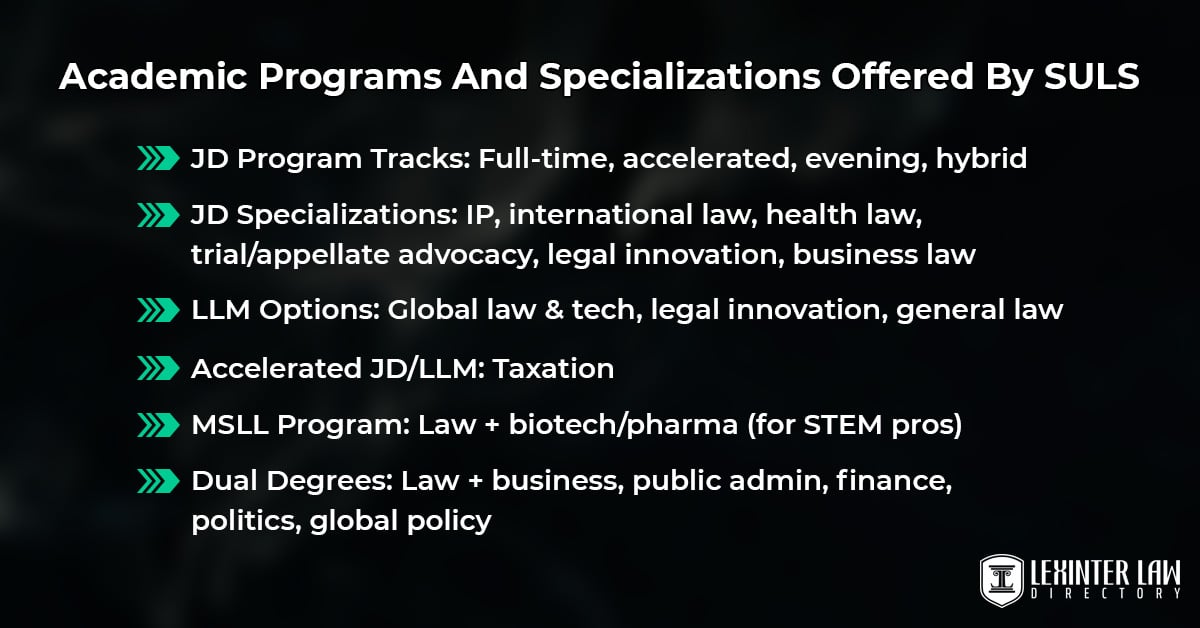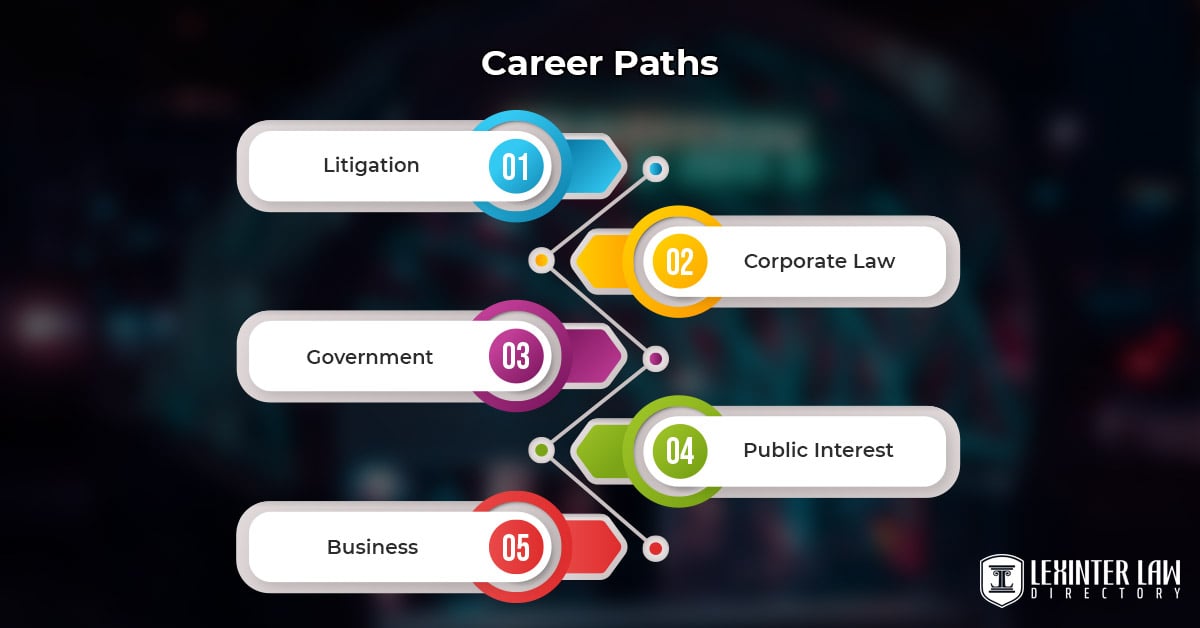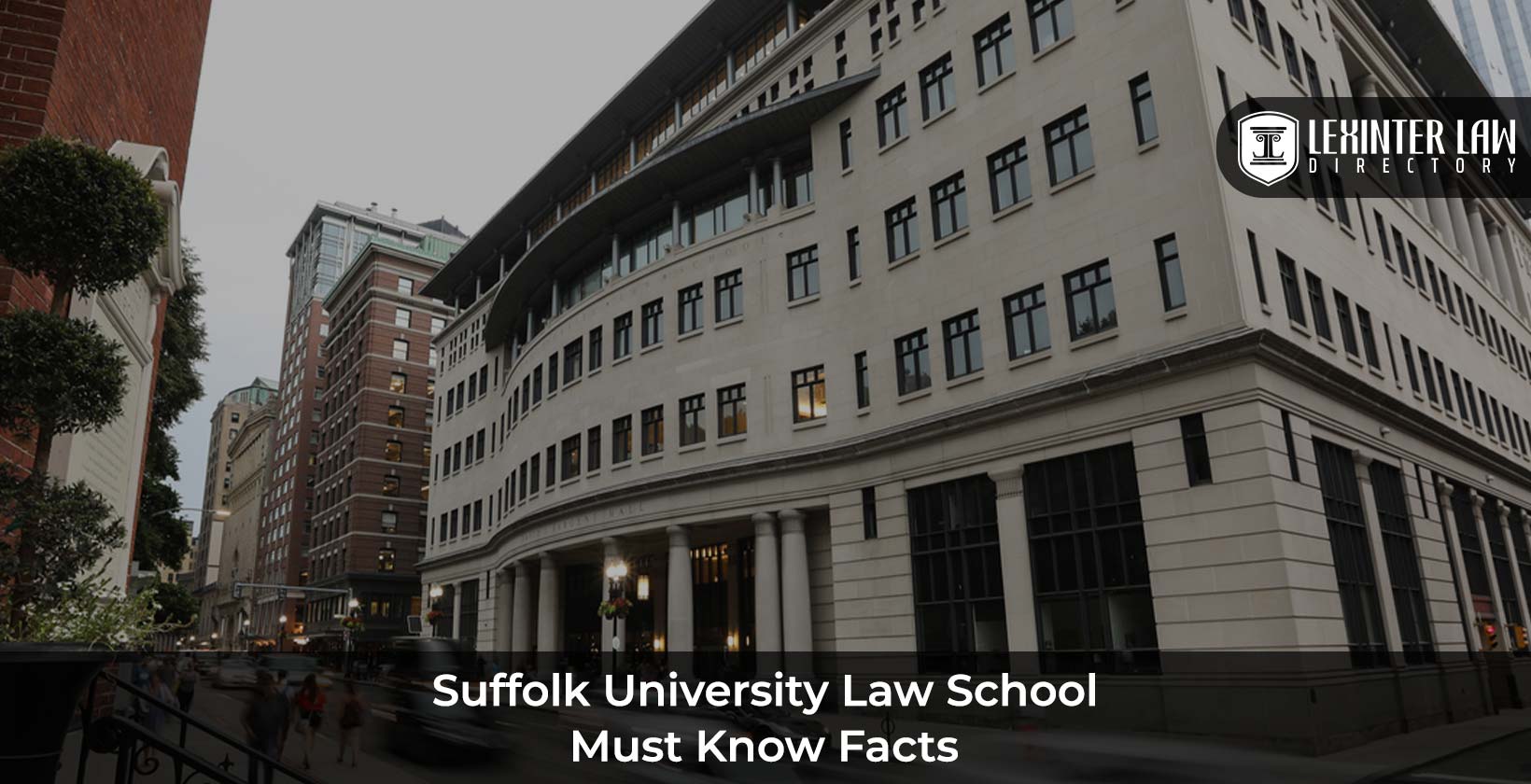Suffolk University Law School – Must Know Facts
Suffolk University Law School isn’t just any school in Boston; it’s a place where diverse minds come together to learn the depth of law. With a history rooted in the heart of the city, this school opens doors to a world where law meets real-life challenges.
From its experienced teachers to its active student community, Suffolk offers more than just textbooks – it offers a journey into the world of justice and fairness. Whether you’re dreaming of standing in a courtroom or making big changes in policy, this is where your path can begin.
Table of Contents
- Location And Address Of Suffolk University Law School
- Historical Background
- Academic Excellence
- Rankings And Reputation
- Current Rankings Of Suffolk University Law School
- Suffolk University Law School 2025 Admissions Profile And Requirements
- LSAT Score Expectations For 2025 Entrants
- Undergraduate GPA Profile Of Admitted Students
- Peer Reputation And Program Assessment Scores
- Required Application Materials And Holistic Review
- Distinguished Alumni Profiles
- Campus Facilities And Legal Clinics
- Career Opportunities And Bar Passage Rate
- Frequently Asked Questions About The Suffolk University Law School
- Conclusion
Location And Address Of Suffolk University Law School
Suffolk University Law School is located at 120 Tremont Street in downtown Boston, within walking distance of the Boston Common, Massachusetts State House, and key historical landmarks. Its home, David J. Sargent Hall, provides modern facilities, including courtrooms and the Moakley Law Library. The central urban setting offers close access to courts, law firms, and government offices, supporting hands-on learning through internships and networking. The building fosters collaboration and engagement among students, faculty, and professionals. Suffolk’s location integrates the city’s legal and civic resources into the academic experience, enhancing legal education through proximity to real-world institutions and opportunities.
Historical Background
Suffolk University Law School was founded in 1906 by Gleason Archer Sr., who began teaching evening law classes in his home to working-class students. Driven by a mission to make legal education accessible to those excluded due to race, class, or financial hardship, the school quickly grew and became known as the Suffolk School of Law in 1907. Located in downtown Boston, it was one of the first institutions to provide legal education to a broad and diverse population. By 1930, it had become one of the largest law schools in the U.S. Suffolk Law became co-educational in 1937 and earned accreditation from the American Bar Association in 1953. Throughout its history, the school has championed inclusivity, producing graduates who broke racial and gender barriers in the legal field. Today, Suffolk University Law School continues to offer accessible, high-quality legal education to a diverse student body. It remains one of the top law schools known for its strengths in legal writing, clinical training, and practical skills.
Academic Excellence
Academic Programs And Specializations Offered By SULS

Suffolk University Law School offers a comprehensive range of legal degrees tailored to diverse career paths. The Juris Doctor (JD) program includes full-time, accelerated, evening, and hybrid online tracks. Full-time JD spans three years, while the accelerated format enables year-round study for early completion. The evening JD accommodates working professionals, and the hybrid model blends in-person and online coursework after initial core credits.
Specializations include intellectual property, international law, health and biomedical law, trial and appellate advocacy, legal innovation, and business law. The Master of Laws (LLM) degree targets advanced legal education with options in global law and technology, legal innovation, and customizable general law. An accelerated JD/LLM in Taxation integrates both degrees in a condensed timeframe.
The Master of Science in Law: Life Sciences (MSLL) program merges legal education with the biotech and pharmaceutical sectors, focusing on professionals in STEM-related industries. The Doctor of Juridical Science (S.J.D.) emphasizes academic legal research for scholarly advancement.
Dual-degree options combine JD studies with business, public administration, finance, applied politics, crime and justice studies, and global public policy. These programs enhance cross-disciplinary proficiency, allowing legal professionals to operate effectively in multifaceted environments. Suffolk’s curriculum supports depth in legal education and practical application across industries.
Qualifications And Achievements Of The Faculty
Suffolk University Law School’s faculty showcases a blend of academic excellence and practical expertise. Members include seasoned legal scholars, practitioners, and public servants with achievements spanning litigation, policy, and scholarship. Professor R. Lisle Baker, with decades of experience in teaching and legal practice, has earned the 2023 Outstanding Practitioner Award and holds a Master of Applied Positive Psychology. Professor David C. Yamada leads the New Workplace Institute and has pioneered legal research on workplace bullying, authoring model legislation that is used across states.
Professor Michael Avery, a renowned advocate for civil rights, has written extensively on police misconduct and constitutional law. In environmental law, Professor Steven Ferrey offers deep knowledge shaped by national advisory roles and a robust publication record. Their accomplishments enrich classroom instruction through real-world insight and leadership in legal reform. This faculty’s commitment to both legal theory and practical application strengthens the school’s educational impact and prepares students for a diverse range of legal challenges.
Rankings And Reputation
Current Rankings Of Suffolk University Law School
Suffolk University Law School ranks 127th among Best Law Schools and 23rd in Part-time Law programs for 2025, according to U.S. News & World Report. It demonstrates strong performance in key specialties, including Legal Writing at 3rd and Clinical Training at 8th, reflecting its emphasis on practical legal education. Dispute Resolution ranks 18th, while Trial Advocacy holds 29th. Intellectual Property and Health Care Law are positioned at 45th and 46th, respectively. Other areas, such as Criminal Law, Environmental Law, and Business Law, also maintain competitive national placements. These rankings showcase Suffolk’s commitment to skill-based learning and support its reputation for preparing students in applied legal practice.
Suffolk University Law School 2025 Admissions Profile And Requirements
Suffolk University Law School in 2025 reports an acceptance rate of 65.3%, indicating a moderately competitive admission process. While the rate allows broad access to applicants, Suffolk maintains academic selectivity through a careful evaluation of each candidate’s academic background and standardized test performance.
LSAT Score Expectations For 2025 Entrants
For the 2025 admissions cycle, Suffolk Law applicants typically present LSAT scores within the 25th to 75th percentile range of 151 to 159, with a median score of 155. This benchmark applies to both full-time and part-time applicants, reflecting consistency in aptitude expectations across formats.
Undergraduate GPA Profile Of Admitted Students
The undergraduate GPA range for Suffolk Law’s 2025 incoming class spans from 3.35 to 3.74, with a median GPA of 3.55 for all program entrants. Part-time students enter with a median GPA of 3.43, signaling strong academic preparation and a commitment to legal study in either format.
Peer Reputation And Program Assessment Scores
Suffolk University Law School holds a peer assessment score of 2.6 out of 5, contributing to an overall part-time program score of 43. These figures, based on nationwide surveys of legal educators and professionals, position Suffolk as a solid institution with specialized program strengths.
Required Application Materials And Holistic Review
In 2025, applicants to Suffolk Law must submit a personal statement, resume, LSAT score, and academic transcripts. The admissions committee conducts a holistic review, considering each candidate’s intellectual capability, work history, writing skills, and motivation for pursuing a legal education within Suffolk’s academic environment.
Distinguished Alumni Profiles
Suffolk University Law School’s alumni network features prominent leaders across law, public service, and academia. Andrea Cabral (JD ’86) broke barriers as the first female Sheriff of Suffolk County and later served as Massachusetts Secretary of Public Safety. Justice Maureen McKenna Goldberg (JD ’78) holds a longstanding position on the Rhode Island Supreme Court, reflecting judicial distinction. Judge Robert Cornetta (JD ’76) contributes to the Massachusetts Superior Court and legal education. Tranquil Salvador III, an LL.M. graduate, is recognized in the Philippines for his advocacy and academic contributions.
Camille A. Nelson, a historic figure at Suffolk, became the school’s first woman and person of color to serve as Dean, promoting legal tech and innovation. These individuals represent the breadth of Suffolk Law’s influence, demonstrating commitment to justice, leadership, and reform across legal systems. Their accomplishments highlight the law school’s impact in cultivating professionals dedicated to advancing legal practice and public service.
Campus Facilities And Legal Clinics
Campus Facilities And Learning Environment
Suffolk University Law School is located in Sargent Hall, a modern academic building in downtown Boston. The facility includes high-tech classrooms, moot courtrooms, and the John Joseph Moakley Law Library, which offers extensive legal resources across multiple floors. The library supports research through its 450,000-volume collection and hosts the Moakley Archive and Institute, preserving significant legal and political history. These facilities provide a structured environment for study, advocacy training, and scholarly development, supporting both academic instruction and experiential learning for all law students.
Legal Clinics And Experiential Opportunities
Suffolk Law offers a broad range of clinical programs where students gain hands-on legal experience under faculty supervision. Clinics include the Accelerator Practice, Family Advocacy, Health Law, Immigrant Justice, Environmental Law & Policy, and the Legal Innovation and Technology Clinic. Additional offerings focus on human rights, online dispute resolution, and transactional law. These clinics serve real clients in areas such as housing, immigration, health equity, and family law. The programs integrate legal education with practical service, preparing students for courtroom practice, policy work, and community advocacy.
Career Opportunities And Bar Passage Rate
Bar Passage Rates And Licensing Outcomes
Suffolk University Law School reports a first-time Bar passage rate of 79.3%, closely aligning with the 80% average among states. Over a two-year span, the ultimate Bar passage rate reaches 88.1%, reflecting long-term success among graduates who retake the exam. These statistics suggest a strong foundation in legal education and Bar exam preparation, supporting graduates in meeting professional licensing requirements.
Employment Outcomes And Graduate Placement
Among the 353 graduates, 53.5% were employed at the time of graduation, with 83.3% achieving full-credit employment outcomes within 10 months. These positions include roles requiring Bar passage, JD advantage jobs, and other professional placements. The data indicates effective career placement support and solid post-graduate performance, highlighting Suffolk Law’s capacity to prepare students for the workforce through academic instruction, practical training, and employer engagement.
Starting Salary
Graduates of Suffolk University Law School report a median starting salary of $100,000 when entering private law firms. Those beginning their careers in the public sector typically earn around $72,000. These figures reflect standard entry-level compensation for recent law graduates and vary by employment setting. Salary outcomes are influenced by factors such as employer size, geographic location, and area of legal specialization. Students pursuing roles in urban markets or with larger firms tend to secure higher starting pay. Suffolk’s salary range illustrates the school’s ability to place graduates in both competitive private practice and impactful public service roles.
Top Law Firms
Suffolk Law graduates enter reputable firms, particularly in Boston and throughout the Northeast. Some secure positions with regional and mid-sized firms that offer structured training and strong mentorship. While the school’s placement in large national firms is competitive, students with high academic standing, strong clinical experience, or specialized certifications often gain access to top-tier firms. Suffolk’s clinical programs, legal innovation curriculum, and trial advocacy training enhance graduates’ qualifications for these selective roles.
Diverse Industries
Beyond traditional legal practice, Suffolk Law graduates pursue careers in compliance, business consulting, public policy, health care law, and intellectual property management. The school’s strong offerings in legal technology, health law, and dispute resolution support the transition into government agencies, nonprofits, corporate legal departments, and startups. Many alumni also work in roles requiring legal knowledge without Bar passage, such as policy analysis, regulatory affairs, and tech-based legal innovation. This diversity in career outcomes highlights Suffolk’s adaptability in preparing students for a dynamic legal job market.
Career Paths

- Litigation: Many become litigators, representing clients in court.
- Corporate Law: Some advise businesses on legal matters.
- Government: Graduates serve in various government roles.
- Public Interest: Some work to protect individual and group rights.
- Business: Many serve as in-house counsel or specialize in business law.
Frequently Asked Questions About The Suffolk University Law School
1. What LSAT Score Do I Need For Suffolk Law School?
You need an LSAT score between 151 and 159 to be within the typical range for admission to Suffolk University Law School. The median LSAT score for all program entrants is 155, which represents the midpoint of successful applicants. Scoring at or above this median increases your competitiveness in the admissions process
2. Is Suffolk University A Good School For Law?
Yes, Suffolk University Law School is well-respected, with strong academic programs, experienced faculty, and a prime location in Boston.
3. Does Suffolk Law Take The GRE?
Yes, Suffolk Law School accepts both LSAT and GRE scores for admissions, though most applicants choose the LSAT.
Conclusion
Suffolk University Law School is one of the best law schools in Massachusetts. The law school is more than just a place to learn. It’s where students grow, find friends, and get ready to be future leaders in law. Its clinics, facilities, and alumni network further enhance professional development, preparing graduates for impactful roles across law, policy, and public service.
Did you find this article helpful? You can also explore the St. John’s University School Of Law.

